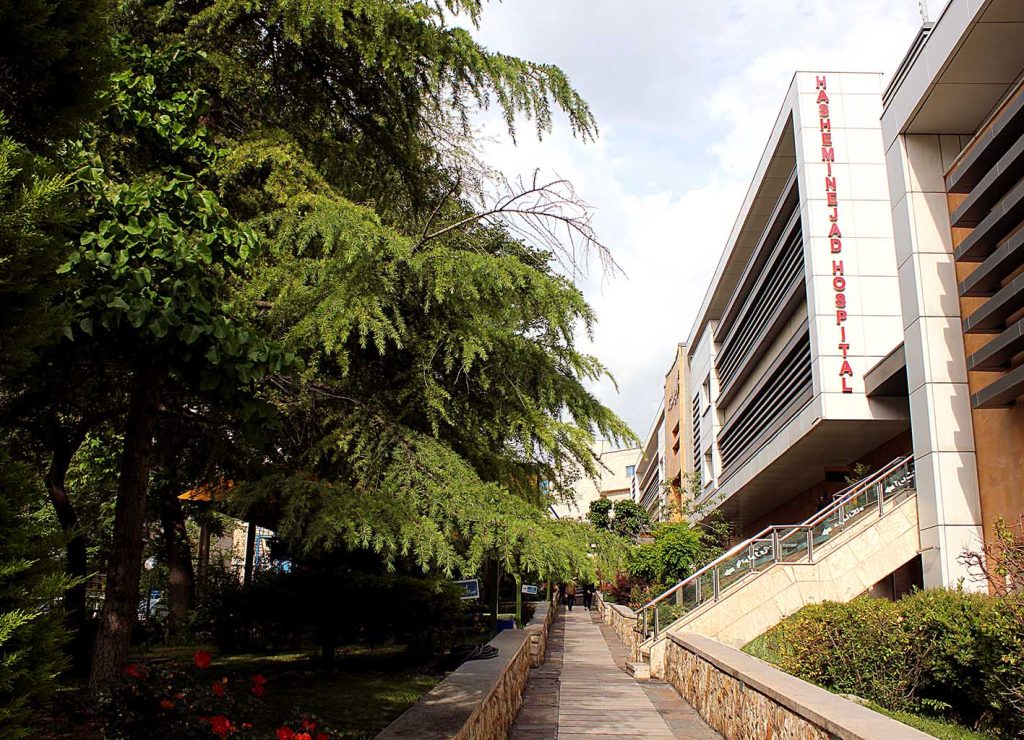Kidney Transplant at Shahid Hasheminejad Hospital, Tehran, Iran

Kidney Transplant at Shahid Hasheminejad Hospital, Tehran, Iran
Achievements:
A few of the organization’s achievements during the recent years include:
-
Awarded the National Award Crystal Figure for productivity and organizational excellence
-
Awarded the Green Management Award
-
Obtained ISO Certificates
-
Awarded the Clinical Governance Figure as a top organization
-
Obtained Excellent First Rank of Accreditation among 1050 hospitals around the country
Specialized and Sub-specialized Wards of Shahid Hasheminejad Hospital:
-
Dialysis
-
Urology
-
Nephrology
-
Kidney Graft
-
General ICU
-
Cardiac ICU
-
Post cath
-
CCU
-
CCU, and
-
Endourology
-
Paraclinical units such as Echocardiography, Exercise Test, CT scan, Lithotripsy, Nuclear Medicine, Radiology, Angiography, and Clinical and Pathological Lab
-
Latest technologies within the least possible time, and special VIP wards
| Length of Treatment | Expected Outcomes |
|---|---|
|
Length of Surgery: 4-6 Hours |
|
|
Length of Stay in Hospital: Patient 10-12 Days Donor 5-6 Days |
|
|
Length of Stay in Iran: Patients up to 30 Days Donor 15 Days |
Doctors’ Fees: Surgeon, anesthesiologist, operating Room Charges, follow-up doctor
Hospital Stay: Recipient: 10-12 days; Donor: 5-6 days (including ICU)
Food and Beverages for the patient and the donor during the hospital stay
Apartment Stay near the hospital for 20 Nights: Included (Patient, Donor, and 1 companion)
Nursing Service Charges: Included
Procedure-related Tests: Pre-op tests for both the Recipient and the Donor
Blood Tests: To check kidney function and overall health
Imaging Studies: X-rays or scans to assess kidney condition
Urine Tests: To evaluate kidney performance
Heart Evaluation: To ensure heart health before surgery
Physical Examination: A thorough check-up to confirm readiness for surgery
Dental Exam: Just a check-up
ENT Evaluation, Endoscopy, VCUG
Medical Equipment and Supplies: Included
Hemodialysis Sessions: Three sessions for the Recipient
Removal of the Double J Stent After Transplantation: Included
Post-operative Check-ups: For both Donor and Recipient
Translator Services: Included
Airport-Hospital-Hotel Transfers: Included
Medical Visa Assistance: for both the Recipient and Donor
Unexpected Additional Hospital Stays or Hotel Stay Beyond the Package Period: Not included in the package
Post-Discharge Medicines & Tests, Additional Antibiotics or Pharmaceutical Medicine: Not included in the package
Medications and Treatment for Any Pre-Existing or Non-Procedure Related Conditions Not Related to Kidney (Cardiac, Lung Problems, Blood Pressure, Diabetes, etc.): Not included in the package
Other Complex Lab Investigations: Not included in the package
Anti-Rejection Injections: Not included in the package
Additional or Special Consultations by Senior Doctors: Not included in the package
Personal Expenses: Cafeteria purchases, Laundry, Personal items
Changes in Treatment Plan Based on Further Evaluation and Tests: May incur additional costs, Not included in the package
-
The final treatment plan may change based on medical evaluation, examination, and investigations.
-
Patients must provide all relevant medical reports before the procedure.
-
IGRA (Interferon-Gamma Release Assay): This test helps detect latent tuberculosis infection, which is crucial before transplantation.
-
Panel WBC (White Blood Cell Panel): This may refer to a general blood test to assess immune function and overall health.
-
Crossmatch Test: This is a critical test that determines whether the recipient has antibodies that might attack the donor’s kidney, potentially leading to rejection
-
PSA (Prostate-Specific Antigen): While PSA is primarily used for prostate health assessment, it may be included in pre-transplant evaluations for male patients.
-
If the Patient Requires Inpatient Treatment Before the Kidney Transplant Operation, including (Plasmapheresis, Hemofiltration, Blood Transfusion, etc.), the Cost for these Treatments Will Be Additional.
Organ Transplant Medical Team’s Profiles

Dr. Mohammad Javad Soleimani
Dr. Mohammad Javad Soleimani is a urologist with a fellowship in kidney transplantation. He got his M.D. from Tehran University of Medical Science and finished Iran University of Medical Sciences as a urologist with a fellowship in kidney transplantation.
Education
-
He studied medicine at Tehran University of Medical Sciences.
-
Eight years later, he specialized in Urology at Iran University of Medical Sciences in 1995.
-
He took a kidney transplant fellowship at the Iran University of Medical Sciences in 2003.
Experience
-
Head of Moheb Mehr Hospital
-
Head of Hasheminejad Hospital (2012 – 2018)
Associate professor of Urology at Iran University of Medical Sciences.

Dr. Hossein Shahrokh
Dr. Hossein Shahrokh is a urologist with a fellowship in kidney transplantation. He got his M.D. from Tehran University of Medical Science and finished Iran University of Medical Sciences as a urologist with a fellowship in kidney transplantation.
Education
-
Dr. Shahrokh got his fellowship in kidney transplantation.
-
He specialized in Urology at Iran University of Medical Sciences in 1986.
Experience
-
Board Member at Moheb Mehr Hospital
-
Head of the Urology Department at Shahid Hasheminejad Hospital
-
Director of Urology Dpt. At Iran University of Medical Sciences (2007-2018)
-
Director of Urology Dpt. At Zahedan University of Medical Sciences (1987-1993)
-
Head of Khatam al-Anbia Hospital, Zahedan (1981-1987)
